#book publishing
Note
My apologies if you have talked about this recently, but, as an aspiring author-if-i-ever-manage-to-finish-something-haha-can-you-imagine, I have a question! I discovered Draft2Digital thanks to one of your old posts and it caught my attention very fast because it looked very promising, but lately (as much as I've been able to consult with Tumblr's search, magnificent and very functional as it famously is) you've been mentioning IngramSpark more, so if I may ask! Is D2D still an acceptable platform nowadays, or is it better to go look for other alternatives? Thanks!
Oh, Ingram Spark used to be one of the only options for paperbacks other than Amazon in the US and I am moving AWAY from them because they’re such assholes.
They’re responsible for the price hike in my books and I’m 99.9% certain they’re skimming profit off my retailer discount. They also put the ability to call customer service behind a paywall ($25 per 30 minutes). You can still email them but good luck ever getting a reply. Which is an issue when they send you a box of hardback books covered in binding glue with pages falling out that they still maintain are in sellable condition and won’t issue a refund for 🙃 (yes to anyone who has been paying attention it’s been 2+ years and I’m still fighting with them over that)
Yeah, no. I’ll be a d2d author going forward. They’ve got the same global market reach as Ingram, as well as recently merged with Gardners in the UK (a big distributor)
Plus it means I can do my ebook, paperback and audio all from one place. (Findaway is partnered with d2d)
I’ll still keep Amazon separate, but that's because Amazon pays better royalties for direct uploads. Everything else I’m using d2d.
Fuck Ingram. They’re never getting another direct penny from me 😅
449 notes
·
View notes
Text
Interior Department Announces New Guidance to Honor and Elevate Hawaiian Language

"In commemoration of Mahina ʻŌlelo Hawaiʻi, or Hawaiian Language Month, and in recognition of its unique relationship with the Native Hawaiian Community, the Department of the Interior today announced new guidance on the use of the Hawaiian language.
A comprehensive new Departmental Manual chapter underscores the Department’s commitment to further integrating Indigenous Knowledge and cultural practices into conservation stewardship.
“Prioritizing the preservation of the Hawaiian language and culture and elevating Indigenous Knowledge is central to the Biden-Harris administration's work to meet the unique needs of the Native Hawaiian Community,” said Secretary Deb Haaland. “As we deploy historic resources to Hawaiʻi from President Biden’s Investing in America agenda, the Interior Department is committed to ensuring our internal policies and communications use accurate language and data."
Department bureaus and offices that engage in communication with the Native Hawaiian Community or produce documentation addressing places, resources, actions or interests in Hawaiʻi will use the new guidance on ‘ōlelo Hawaiʻi (Hawaiian language) for various identifications and references, including flora and fauna, cultural sites, geographic place names, and government units within the state. The guidance recognizes the evolving nature of ‘ōlelo Hawaiʻi and acknowledges the absence of a single authoritative source. While the Hawaiian Dictionary (Pukui & Elbert 2003) is designated as the baseline standard for non-geographic words and place names, Department bureaus and offices are encouraged to consult other standard works, as well as the Board on Geographic Names database.
Developed collaboratively and informed by ʻōlelo Hawaiʻi practitioners, instructors and advocates, the new guidance emerged from virtual consultation sessions and public comment in 2023 with the Native Hawaiian Community.
The new guidance aligns with the Biden-Harris administration’s commitment to strengthening relationships with the Native Hawaiian Community through efforts such as the Kapapahuliau Climate Resilience Program and Hawaiian Forest Bird Keystone Initiative. During her trip to Hawaiʻi in June, Secretary Haaland emphasized recognizing and including Indigenous Knowledge, promoting co-stewardship, protecting sacred sites, and recommitting to meaningful and robust consultation with the Native Hawaiian Community."
-via US Department of the Interior press release, February 1, 2024
--
Note: I'm an editor so I have no idea whether this comes off like as big a deal as it potentially is. But it is potentially going to establish and massively accelerate the adoption of correctly written Native Hawaiian language, as determined by Native Hawaiians.
Basically US government communications, documentations, and "style guides" (sets of rules to follow about how to write/format/publish something, etc.) can be incredibly influential, especially for topics where there isn't much other official guidance. This rule means that all government documents that mention Hawai'i, places in Hawai'i, Hawaiian plants and animals, etc. will have to be written the way Native Hawaiians say it should be written, and the correct way of writing Hawaiian conveys a lot more information about how the words are pronounced, too, which could spread correct pronunciations more widely.
It also means that, as far as the US government is concerned, this is The Correct Way to Write the Hawaiian Language. Which, as an editor who just read the guidance document, is super important. That's because you need the 'okina (' in words) and kahakō in order to tell apart sizeable sets of different words, because Hawaiian uses so many fewer consonants, they need more of other types of different sounds.
And the US government official policy on how to write Hawaiian is exactly what editors, publishers, newspapers, and magazines are going to look at, sooner or later, because it's what style guides are looking at. Style guides are the official various sets of rules that books/publications follow; they're also incredibly detailed - the one used for almost all book publishing, for example, the Chicago Manual of Style (CMoS), is over a thousand pages long.
One of the things that CMoS does is tell you the basic rules of and what specialist further sources they think you should use for writing different languages. They have a whole chapter dedicated to this. It's not that impressive on non-European languages yet, but we're due for a new edition (the 18th) of CMoS in the next oh two to four years, probably? Actually numbering wise they'd be due for one this year, except presumably they would've announced it by now if that was the case.
I'm expecting one of the biggest revisions to the 18th edition to add much more comprehensive guidance on non-Western languages. Considering how far we've come since 2017, when the last one was released, I'll be judging the shit out of them if they do otherwise. (And CMoS actually keep with the times decently enough.)
Which means, as long as there's at least a year or two for these new rules/spellings/orthographies to establish themselves before the next edition comes out, it's likely that just about every (legit) publisher will start using the new rules/spellings/orthographies.
And of course, it would expand much further from there.
#don't ask me about the magazine and newspaper half of this#bc I do Not know AP style#except the differences I'm annoyed at lol#ap doesn't respect the oxford comma#hawaii#hawaiʻi#language#orthography#linguistics#language stuff#hawaiian#native hawaiian#united states#publishing#book publishing#indigenous#indigineous people#indigenous languages#language revitalization#language resources#editorial
383 notes
·
View notes
Text
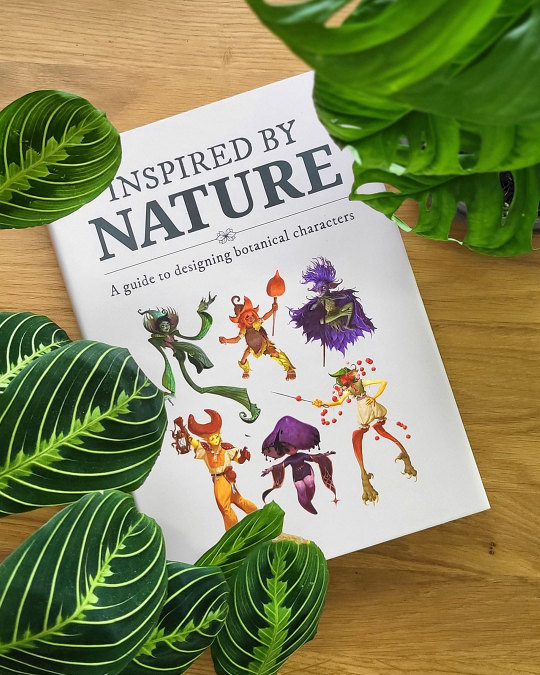
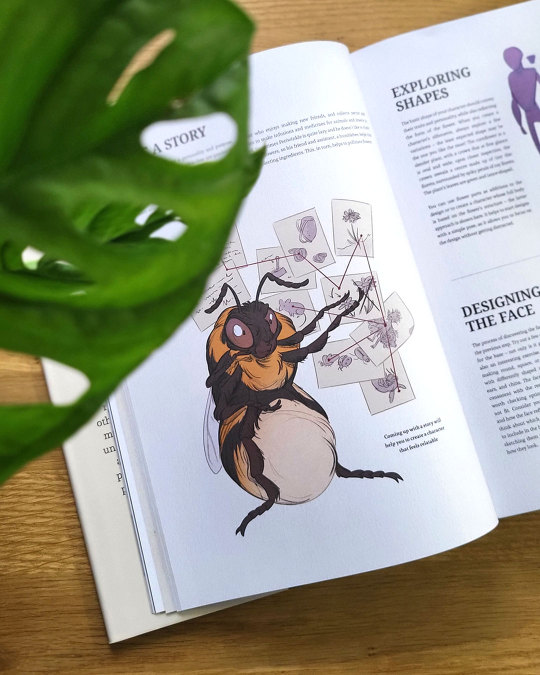


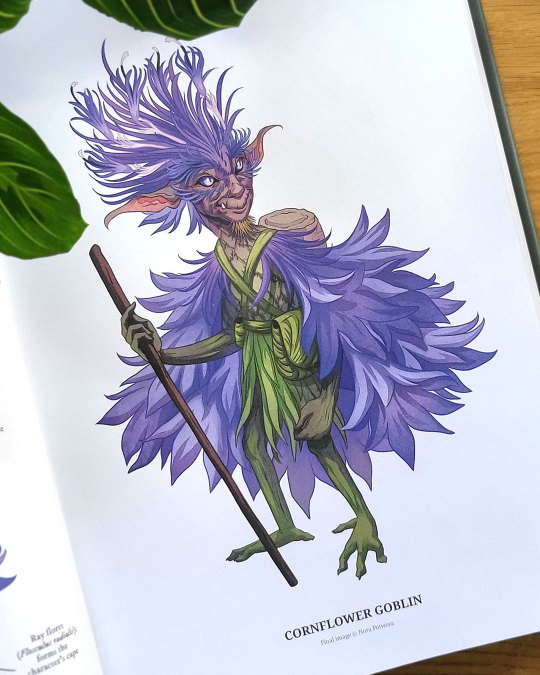
Hello folks!
Last year I had an amazing opportunity to unleash creativity and came out of my comfrot zone by creating the character design tutorial for "Inspired by Nature".
The book, published by @3dtotal, just had it's premiere not so long ago, and is now available in the 3dtotal store!
It was a huge fun, and I hope you like how the Periwinkle came out!
#3dtotal#3dtotalpublishing#book publishing#artbook#character design#character art#inspiredbynature#floral character#cornflower
202 notes
·
View notes
Text
Future publication
One of the things I want to publish is Fitzjames' 1833-34 Midshipman journal, which was donated to the National Maritime Museum Greenwich. I had my book concept printed to see what it looks like in print, and I love it! 🥰
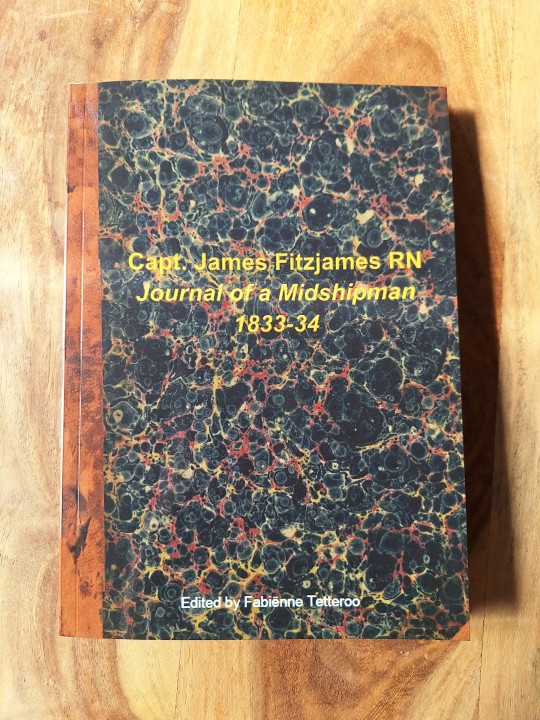
The cover is a picture of the actual journal, so that you feel like you're holding the real thing! When I've finished writing the biography I'm finally going to approach publishers.
[JOD/86, National Maritime Museum Greenwich. See the original journal here.]
130 notes
·
View notes
Note
How to create a Copyright for my fiction novel?
For example:
All right reserved. This is a work of fiction...
(I forgot all of it)
In August we wrote a beginners guide to copyright, in which we talk about whether you need it, how to get it if you do, and what information you should include in a copyright page.
We've even given you a downloadable template that you can customise to your needs for both fiction, and non-fiction books! Click the link below.
#writeblr#writing tips#writing community#writers of tumblr#copyright for writers#writer#writing#creative writing#writers#creative writers#writerblr#writblr#writing advice#writing resources#resources for writers#advice for authors#book publishing#publishing advice#writing help#nanowrimo#helping writers#publishing resources#writing inspiration#writers corner#writers on tumblr#writers and poets#authors
199 notes
·
View notes
Text
807 notes
·
View notes
Text

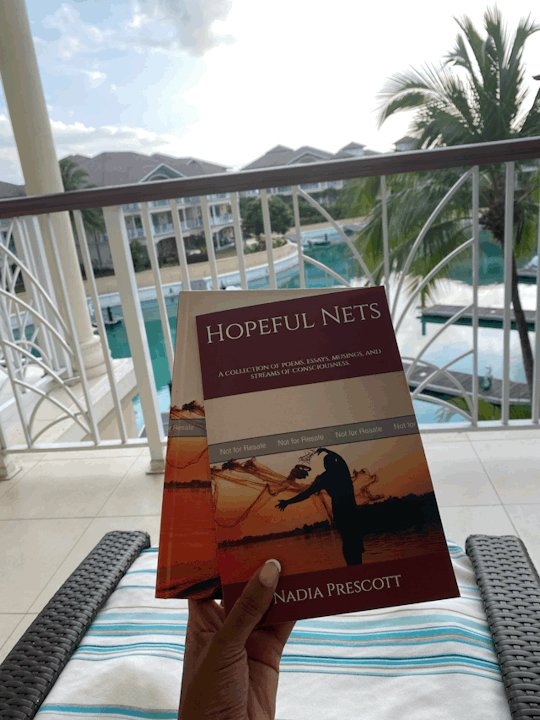

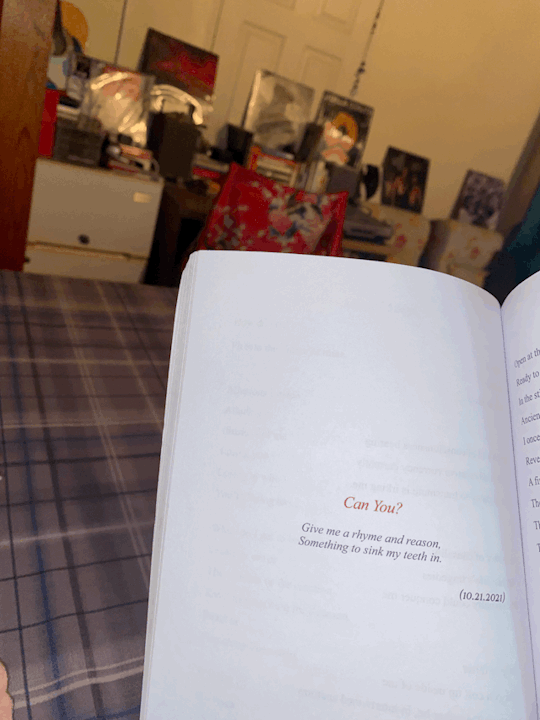
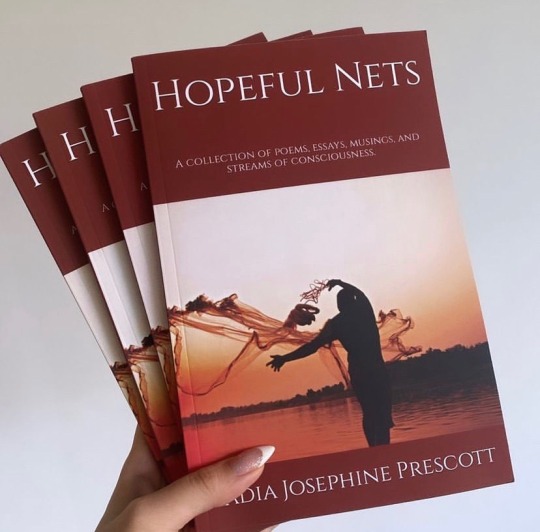
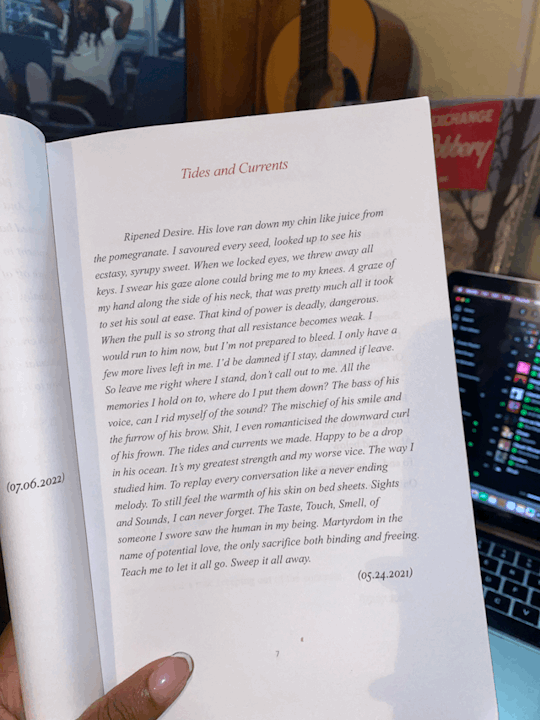

🙏🏾Publishing my first book at this time in life has been a deeply sentimental and spiritual experience. Thank you to all who have supported. I truly believe these poems and musings will deeply resonate in the hands of whoever it comes in contact with. Words are Life and Art is eternal. 🌹
If anyone wants a real insight into my mind, you can find that in Hopeful Nets. It’s me at my most transparent and vulnerable.
Available now on Amazon at the link below.💫✨👇🏾 📖 Blessings.
#books#books and reading#book quotes#books are life#book release#book publishing#book lover#book review#books and literature#poetry and poems#poetry book#caribbean poetry#poetry and poetics#poetry#women writers#women authors#female writers#female authors#caribbean writers#blacktumblr#blackgirlmagic#support#support women#black voices#new books#new author#amazon kdp#amazon#purchase#philosophy
427 notes
·
View notes
Text


GUYS!!!
I decided to get one of my stories printed into a book, AND IT ARRIVED TODAY 🥹
Look at it! Look at ittttt! 😍
Ah! Anyway, I wanted to thank @scriibble-fics for recommending the printing place (lulu) and a big thank you to @athenasparrow @cscs01 @chiechie97 lighteningmischief & oldenough2knowbetter for their awesome reviews I totally added to the back cover❣️
Anywho, I highly recommend doing this. Such a cool feeling!
#and thank you to my dog for providing this background 🤣#I printed A BOOK#book publication#book publishing#I HAVE A BOOK#Fuck The Rich#Jily#Jily BOOK#JILY SMUT#xavier serrano#athenasparrow#scriible#chiechie97#cscs01
81 notes
·
View notes
Text

I'm finally making the leap and announcing it-- Ghosts of the Steel Road will be arriving on September 26th of this year!
This novel has been a long-time coming, and while there's still some work to do, I am so excited to be able to say I'm a self-published by the end of this year.
More to come on my website in the next few months, but feel free to ask any questions about it as time goes on!
#writeblr#writing#my writing#self publishing#self publication#indie author#indie publishing#fantasy author#book publication#book publishing
33 notes
·
View notes
Text
Myths about Traditional Publishing
Now that I'm in the book-writing world I see a LOT of anti-trad publishing posts. They usually have some nonsense in them so I'm going to address these myths/misrepresentations.
I’m NOT trying to say everyone should trad publish. In fact, I actually suggest people without significant writing experience not write a book at all until they get experience. You asked. If you want to write something faster without any editors and you're okay with doing a lot more work per sale, or if you haven't published anything shorter than a book, I DO recommend self-publishing to you (or, re-thinking why you want to write a book.) Just make sure you’re making your choice without influence from misinfo!
🚫 “Traditional Publishing means less money because your royalty is less!”
✅Your royalty is less but every one of these anti-trad posts misses the very important financial reality that traditional publishers sell your book widely, meaning more sales without work on your end, and more importantly: the ADVANCE! Yes, trad writers get money before a single book sells! On average most traditionally published books make WAY more than self, even though there are very rare stories of financial success among the portion of self-published authors who are very talented and hard-working.
🚫 “The advance doesn’t count because you have to pay it back!”
✅BS. Money DOES NOT flow from the writer to the publisher in trad pub. Not even if you sell zero books. As the royalties come in, they initially start flowing to refill the advance that the publisher lost, and they go to the writer once that is refilled. The writer is happy because they already have their advance, which has already gone to paying off their debts or into an index fund or the downpayment on a house so they don’t have to throw away money renting, so they’re in a much better financial situation than with no advance. There is no downside to getting guaranteed money earlier.
The only way you’d have to pay it back is like any job: if I pay you to fix my roof and you don’t do it, the contract is broken and I am legally entitled to my money back. Hopefully, you already knew that.
🚫 “The advance doesn’t count because you get it in installments and you have to pay some to your agent and taxes exist!”
✅The second part of that is true, but so what? With a $50k advance and an agent, you keep $42,500 minus taxes. That’s $21,250 on signing and $21,250 on completion. (And yes, there are different installment patterns, different advances etc.) With self-publishing, you get $0 and then $0 forever until your book starts selling. If your advance is small that’s unfortunate but remember self-publishing advances are $0. Zero dollars is much less than $42,500. Zero is less than $1. Self-publishers also go into actual debt to pay for editors, printers, and marketing, so you could easily start with negative money.
🚫 “Traditional publishing sucks because they expect you to do all your own marketing!”
✅Huh? Whatever expectations are happening in the heart of my publisher are none of my business or concern. Marketing on my end is not in my contract and I doubt it’s in the majority of trad contracts. I’ll definitely promote my book as much as I can but I’m sure as heck not going to spend 40 hours a week doing it or getting a degree in marketing unless I'm getting paid.
However, the publisher employs professional book marketers and they are the ones incentivized to sell the first [insert advance dollar amount] worth of books.
Also, who do you think markets your self-published book? The Marketing Fairy?
🚫 “You have to write the whole book first.”
✅Yes with fiction, usually. Unless they trust you because of your track record, and you have a good pitch and part of the book written (like the first three chapters.) With nonfiction, generally, you don't need to have written much of that, maybe one chapter and lots of articles. They might require more if you're writing a memoir, especially if you don't have writing experience. They want to know you can do it.
🚫 “Traditional publishing is just a lottery!”
✅I mean there are elements of luck, what’s in fashion, privilege etc. just like in all fields, especially creative ones. But most of the reason people get trad contracts is hard work, experience, a good concept, proof of successful writing and publishing (including non-books!), caring about what the readers want, etc.
Most people who I talk to who tried and failed to traditionally publish had no published writing of any sort. Most who succeed at trad publishing had plenty, as well as a lot of expertise in that area. Like, a degree and/or years of experience in that field, not "I listened to a few podcasts on it."
🚫 “Actually a smaller advance is better.”
✅Absolutely not. This is an insidious nonsense rumor akin to “a smaller salary is better” and I wonder if publishers started that rumor to financially abuse their writers or if writers spread it because hate themselves and each other. I’ve heard all the justifications, they make no financial sense, if you hate money give it to me.
The only reason to take a smaller advance would be the same as the reason to take a smaller salary: if the publisher makes up for it with something else that's worth it.
Interestingly, I'm told bigger advances sell out faster, because they attract attention behind the scenes, from reviewers, booksellers, etc.
🚫 “Even an advance of 100k isn't that much when you split it into four payments over 2 years. Better to get regular royalties. Not like $100k is enough to quit your day job.”
✅$100k split into four payments over 2 years is WAY more than the $0 self-publishing gets you before sales. Even $200/month for 40 YEARS is less than 100k, and that's without the time value of money or inflation. And, remember, trad published books get royalties too, the only difference is the first [insert advance here] is GUARANTEED, and after that, fewer dollars per book sold. If you make $100k per book and don't spend too much time per book, that can very easily BE your day job and you CAN certainly quit your other one to pursue that. But no one said anything about assuming selling one $100k is enough for the rest of your life. That would be an absurdly irresponsible mindset. Just because trad publishing doesn't guarantee anything crazy like one book financially supporting you forever, doesn't mean it's worse financially. What a weird, irrelevant straw man.
🚫 “But if you don't sell out your advance, the publisher drops you!"
✅Misleading. First, what is the time frame of this accusation? Your book is not going to sell $50k worth in a week, most likely. Second, what do you mean by "drop?" The publisher does not do anything bad to the author as they are waiting and hoping for sales. They continue to sell and work with the book, they do not yeet it or burn it or un-publish it.
What does happen is your publisher will consider your past success when deciding whether to sign another book contract and how much to give you for your next advance. If your last book sold $100k in a month, but your advance was $101k, then yes, they have lost money so far. But the prospects of your writing are fantastic, and they are likely to sign you again. There is more than one month in their lives.
If your book did not perform well--say it sold $5k in 5 years--then that ONE publishing company isn't going to sign you again. Duh? Then you have like 99,999 other publishing companies to look at. Or you could self-publish. Is that a problem? How are the pro-self-publishing people so scared of self-publishing? Or you could just not write more books, you tried it once, you can decide that's enough, especially if you aren't happy with how it turned out. Don't we all have more than one goal in life? Didn't you want to get into fishing or dancing or insurance sales too?
🚫 “Getting a book contract is my retirement plan!"
✅(I realize most of this post seems pro-trad but yes, we need some reality check.) A trad contract is as good as it does--and as good as the author is. Same with self-publishing. Maybe you could make a lot of money at it, but I ask, what is your experience? How do you know your book is so amazing? You know some of the most financially successful writers still put out TONS of books, right? Because it's a job.
🚫 “Nobody earns a living from this."
✅Well. No, some people do earn livings from book writing, at least temporarily. A single book isn't going to sustain you forever, like I said, but it could potentially sustain you for the time it takes to write it, and even longer maybe, if you and your publisher are good enough. The next year will pass whether you're working on a book or you're working in insurance sales or at Starbucks; so you must consider your values, skills, opportunity cost, the money you get from each, and whatever else matters to you when deciding which to do. You can pitch a publisher and say "no, that's not enough money" when they offer you a contract, if you want.
At the end of the day, trad publishing is a business. No publishing company owes you anything except what is in the contract they signed. Not working with the same place twice isn't going to kill you. Getting rejected is part of the game--you didn't get into every college you applied to, did you? You don't get every award or every job you apply to, you don't cry when you open the Pepsi bottle and it says "try again." But if you don't treat writing like a job, if your publisher sucks, or you think it's a get-rich-quick scheme that requires no skills, craft, or ambition, then you will fail miserably and regret the whole thing.
141 notes
·
View notes
Text
📕📗📘💦🍆 A Brief History of BoneQuest Books: A Foray Into Nonsense
25 notes
·
View notes
Text
"At HarperCollins, a lot of attention and thought is given to deciding exactly what combinations of margin measurements, font, and layout feel most appropriate for the genre, and writing style.
But in a case of do-your-part environmentalism, designers at the publishing house have now standardized a series of subtle and imperceptible alterations to normal font style, layouts, and ink that have so far removed the need for 245 million book pages, totaling 5,618 trees.
Telling the story in Fast Company, representatives from HarperCollins, one of the four largest publishing houses in the world, explained that the idea first arose in Zondervan Bibles, HarperCollins’ Christian publishing division. Being that the Bible is 2,500 pages or sometimes more, saving ink and pages was not just an environmental consideration, but one of production costs.
A new typeface called NIV Comfort Print allowed Zondervan to shave 350 pages off of every Bible, which by 2017 had amounted to 100 million pages, and which, as Fast Company points out, would be four times higher than the Empire State Building if stacked.
The production and design teams then wondered how much they could save if they applied the same concepts to other genres like romance and fiction. Aside from the invention of the eBook, publishing hasn’t changed much in the last 100 years, and the challenge was a totally novel one for the teams—to alter all their preconceived ideas and try and find a font and typeface that resulted in fewer pages without being harder to read.
They eventually standardized 14 different combinations their tests determined were the most environmentally friendly, and which delivered an unchanged reading experience.
But the challenge didn’t stop there. Printed books, one might not know, are printed in large sheets which are then folded into sections of sixteen pages, meaning that Leah Carlson-Stanisic, associate director of design at HarperCollins, has to calculate the savings of space, words, and ultimately pages with the help of her team to fall in multiples of sixteen.
Nevertheless, they have been successful with it so far, and in the recent print run of one popular book, 1 million pages (or a number near 1 million that coincides with the 16 times tables) were saved.
“We want to make sure our big titles, by prominent authors, are using these eco-fonts,” Carlson-Stanisic said. “It adds up a little bit at a time, saving more and more trees.”"
-via Good News Network, April 4, 2024
--
Note: Great! Waiting to see this on the rest of their books and at the other big publishers!
Actually, though, it's worth noting that this may not come quickly to the other large publishers, because Harper Collins almost certainly owns that font - meaning that other publishers would have to pay HarperCollins in order to use it, on an ongoing basis.
More on publishing shit and more realistic solutions here below the cut!
What I'm hoping for and think is more likely is that this will inspire the development of open source eco-friendly fonts, which would be free for anyone to use. That would make it far more likely other publishers would adopt eco-friendly fonts.
I'm also hoping it would inspire other publishers to create similar eco-friendly fonts of their own.
Ideally, there would be a whole new landscape of (hopefully mostly open source) eco-friendly fonts. And/or to see calculations of the eco-friendliness of popular existing fonts, compared to each other.
If we could have a publicly accessible list of calculations for different fonts, including fonts designed to maximize eco-friendliness, I really do think that it would affect which fonts publishers choose to use. Here's why:
Most people in publishing are on the left (notoriously, actually) and really do care about the environment
People in publishing are plenty aware of these issues re: paper and trees, I promise
Shorter books means smaller production costs - and possibly smaller shipping costs as well, over time! So it would save them money too.
Eco-friendly fonts could also be combined with other measures for greater effect, such as bamboo paper (already in use for a lot of projects where page color/quality is more flexible) and thinner paper (aka paper with a lower weight) that uses less trees.
Don't expect books to all move to just one or two different fonts, though. Publishers and typesetters and font designers will innovate to create more options instead, though it will take longer. This is because different books really do use different fonts for various different reasons - one new font to rule them all isn't really a solution here.
"Every book is in the same font" may sound like a "whatever" deal to a lot of people, but as someone who works in publishing - trust me, it would actually make your reading experience worse, even if you could never quite put your finger on why.
#publishing#books#book publishing#bookblr#harper collins#fonts#font design#eco friendly#sustainability#conservation#trees#deforestation#good news#hope
343 notes
·
View notes
Text
Questions to Ask Before Signing With a Literary Agent
Getting published might be your dream, but meeting with a literary agent is more like a job interview. You’ll be professional partners. They should prioritize your vision for your manuscript while guiding you on the best path to bookstore shelves.
If you get to meet with a potential agent for your next book, consider asking these questions to ensure that you’ll work well together.
What Did You Like About My Manuscript?
The agent’s answers will reveal what they’re most interested in working on. You’ll also learn what they consider to be your strengths as a writer.
If they’re interested in your story for reasons other than its intended purpose or your vision, you’ll prevent yourself from signing a contract based on a misunderstanding.
Do You Want a One-Time Client or a Long-Term Writer?
Literary agents are very busy.
The average literary agent makes $37,482 per year and given that most of the big publishers headquarter in New York City or L.A. where the average cost of living requires $63,600 annually in NYC and $30,640 for L.A. rent alone each year, it’s understandable that many agents do their agenting work alongside a full-time job.
Some will only have the time and energy for a one-time client who has a stand-alone project ready to go. Others may have more time in their schedule to commit to a long-term working relationship with a writer.
If you’re interested in turning your manuscript into a series, exploring other genres, or have ideas for future projects, the answer to this question is crucial.
Why Did You Become a Literary Agent?
It’s important to get to know someone before working with them. This is a standard question for anyone in a job interview. You deserve an agent who’s passionate about helping authors, especially first-time authors if you’ve never been published before.
How Long Have You Been an Agent?
A new literary agent could have gained the experience to become great in their own agency by working with other agents at a publishing house for years. Others may have a law degree, but little real-world experience yet.
What you do with the answer to this question is up to you. The new lit agent could be the best person for your book because they have the energy, focus, drive and passion to help you succeed. But you might also benefit from having a more experienced agent if your manuscript will be tricky to sell. (More on that below.)
What Did You Love about the Books You Sold Recently?
You should already know the agent’s latest sold books based on the query research that made them a good person to query. However, looking at a list of titles is different than hearing why the agent cared about those manuscripts in the first place. It shows part of their character and their interests, which may or may not fully line up with your hopes for our writing future.
What’s Your Communication Style like throughout the Publishing Process?
Some agents are very hands-on during the publishing process and some prefer to send occasional updates so you don’t get weighed down by details you don’t understand.
Again, how you react to the agent’s answer is up to you. There are tons of reasons why you may or may not want a hands-on agent, just like there are tons of reasons why agents might keep you posted for the most important info. They can explain a bit more after answering your initial question.
How Many Clients Are You Currently Representing?
Agents with a long list of clients might make enough from agenting that they can handle a big client team and still devote enough attention to be by your side through the publishing process. Others may only have a few clients because that’s the best balance for their work life and communication.
Having fewer clients doesn’t mean an agent is bad news. Don’t forget to follow up to this question if you want more information.
Are You Involved in the Editing Process?
Editors often take over when a manuscript needs work before publishers consider it or after a publisher signs on to sell it. Agents sometimes jump into the work with their clients if they have the time to do so.
Editing can take a while since broad developmental editing almost always happens before agents pitch a manuscript. How many people you want to communicate with throughout that process depends on your communication preferences and the agent’s editing expertise.
When Do You Believe My Book Will Go Out on Submission?
If your agent has read your full manuscript, they may have an idea of how much editing you’ll need to do. One agent who wants major changes could indicate that the process might take up to a year, while another could estimate three months of editing work in your future.
This also means they have different visions for your book’s final draft. You can talk more about that in detail after they estimate the editing time prior to submissions.
How Long Did the Submission Process Take for Your Other Clients?
Agents have to pitch manuscripts to publishing houses. It’s like the query process for writers, but for agents. They often know which houses are more likely to pick up specific stories based on their industry connections and previous sale experience too.
That being said, the submission process takes an average of 4–6 weeks. If the agent’s previous clients took longer or shorter than that, it’s important to know why. They may have been up against industry factors out of their control or could have learned better ways to sell books based on past mistakes that took longer than necessary.
Do You Think My Manuscript Will Be Challenging to Sell in Today’s Market?
Consider your history of reading. At different ages and stages of your life, you were likely into different genres and themes. The book industry as a whole also goes through stages.
Sometimes, a fantasy book about a high schooler and her vampire boyfriend makes everyone preorder the next YA vampire book they can find. Other times, all people want to read are bubblegum romance books with familiar plot formulas because the latest copies from the biggest romance writers have everyone swooning.
Books can also become more likely to sell if they involve a societal topic or challenge that everyone’s talking about.
It’ll be more challenging to sell books that don’t appeal to anything readers are currently buying en masse. Challenging—but not impossible. The best agent for your book will identify potential challenges and plan ways to navigate around them or spin them into something appealing to publishers.
They might also pitch editing ideas to tweak your story closer to what sells in a similar age group or genre. Whether or not you agree that those ideas align with what you envisioned for your book is up to you.
Do You Manage Subsidiary, Foreign, and Film Rights?
Subsidiary rights are the legal rights to every non-physical form of your book. A literary agent will know how to handle traditional book rights (rights concerning printing, manufacturing, and distribution), but also managing subsidiary rights makes them an even better advocate for you.
They’ll negotiate for your rights to do things like have a say in which publications gain excerpts from your book for PR purposes, who can make book-club editions, which company makes an audiobook, and how many languages your book gets translated into.
Foreign rights are the rights for a company to publish your book in its original language in countries where it wasn’t initially published. Related, there are translation rights that go with that too.
Film rights cover things like how much you and/or your publisher get paid when a company purchases the rights to turn your book into a movie. It doesn’t include the rights for the author to be involved in casting or screenplays (unless the author is already super big and/or has a hand in the film world).
Agents who can do all of these things reduce how many pieces of your profit pie you have to give to each person helping your book succeed. They also streamline who you trust with such big decisions.
What Happens if My Manuscript Doesn’t Sell?
Agents set their own time limits on trying to sell a manuscript based on factors like their own schedule, the market’s interest, how many publishers they’ve contacted, etc.
Some agents set a hard time limit and recommend writing another book if your initial one doesn’t sell. Unfortunately, they may not feel like the right representation for the new book if it’s wildly different from what you initially queried.
Others will try selling a manuscript for a few years. They might believe it will be a hit, but they need to wait for changes in the market or publishers to become available for work like yours.
There’s really no wrong answer to this question. It’s just good information to have, especially if you’re interviewing more than one agent before signing with anyone.
How Many Deals Have You Made in the Last Year and What Were the Figures?
You’ll know the publicly announced book deals the agent has made before you speak with them based on your query research. However, there may be other deals you don’t know about.
It’s also important to get the figures for each deal to estimate your potential book deal number. You should compare your standing to authors of similar standing that the agent recently helped get published.
If you’re a debut author comparing yourself to long-time authors with six-figure deals, you won’t have a similar experience unless you’re the one in a million who has an instant hit with your book sales.
What Are Our Next Steps after I Sign?
You’d typically ask this in a regular job interview to know if you need to go through other interviews or if you’ll get an employment contract.
After signing with your agent, they’ll lead you through the various steps to getting published. They’ll likely have personal revision suggestions, then want to submit your revised work to editors. Then the editing process begins.
Your agent should know your next general steps before you sign the contract. If you sign, they’ll get more specific with details like which editors they think will be a good fit for your work and when they can schedule meetings with you to go over their revision suggestions.
-----
Getting to this point with an agent at all is a huge success. So many writers never get published or even send a query letter. Congratulate yourself for getting this far and don’t be afraid to ask more questions than the ones I’ve listed here. More information will lead to a more informed decision when you decide to sign or not.
199 notes
·
View notes
Text
FitzLetters Book (future publication)
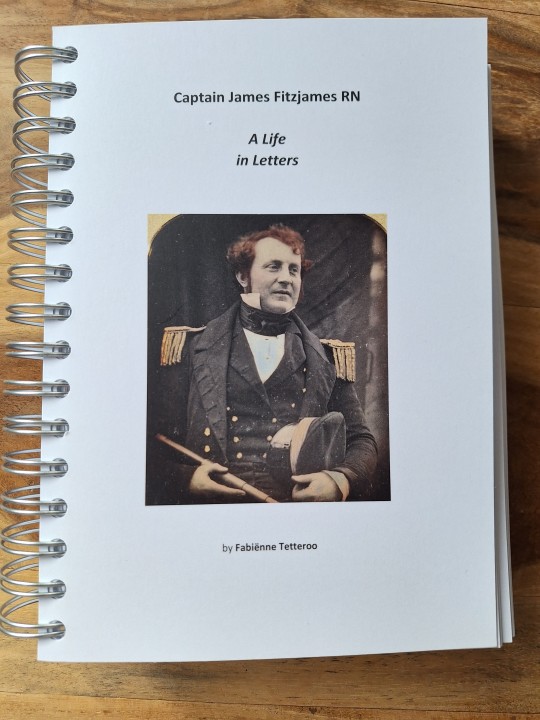
And of course there's this beast of a book: Fitzjames' correspondence 1825-1845! First had it printed back in 2022 but now had it printed again after corrections & adding more letters. There's no text of mine/footnotes yet. More editing to do first. I have a different idea for the cover but this looks nice for now. ❤️
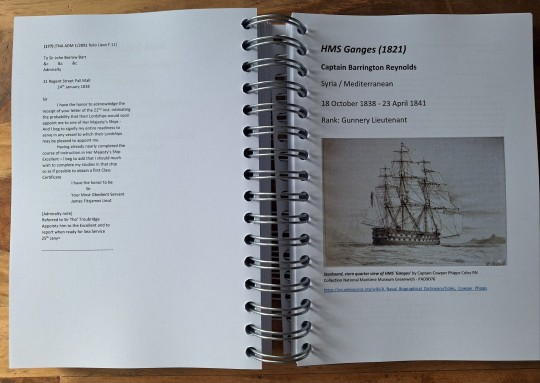
The letters are divided by the ships Fitzjames served on. A treasure trove of information, not just about Fitzjames but also early 19th century (naval) history. Over 550 pages! I typed all of this. 😵💫 Will also find a publisher for this after finishing the Fitzjames biography by the end of this year, hopefully!
#james fitzjames#royal navy#franklin expedition#naval history#age of sail#book publishing#historical research
85 notes
·
View notes
Note
Lots of people have told me I should self publish, but I think I still want to try to go through traditionally publishing my book first. I've got a finished manuscript, so how do I go about querying agents to find the best fit?
Pitching your manuscript to literary agents is a length process that requires lots of dedication, and a great deal of research. To get the most out of your querying, you definitely need to go in prepared.
We've put together this walk through for how to pitch your novel to literary agents, including some helpful do's and don'ts at the link below!
#publishing#querying agents#publishing agents#literary agents#book agents#am querying#writing asks#writing blog#writers#creative writing#writing#writing community#writers of tumblr#creative writers#writeblr#writerblr#writing tips#book publishing#trad publishing#traditional publishing#book pitch#book proposal#writer#writing advice#writing resources#writers on tumblr#writers and poets
48 notes
·
View notes
Text
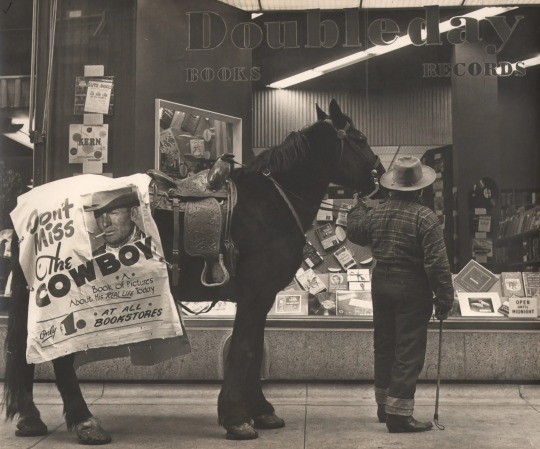
Untitled c.1950
Photo Credit: Simpson Kalisher
149 notes
·
View notes